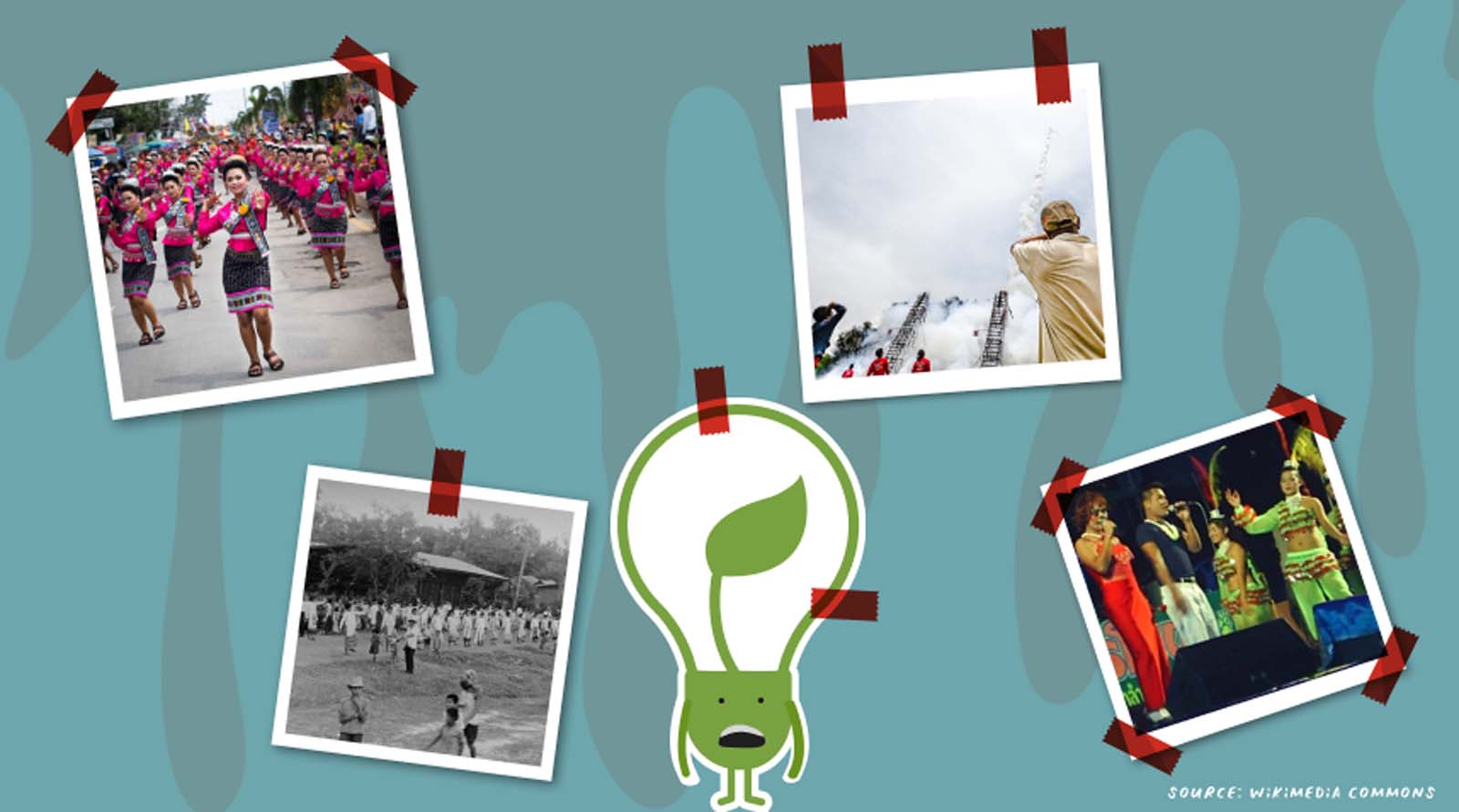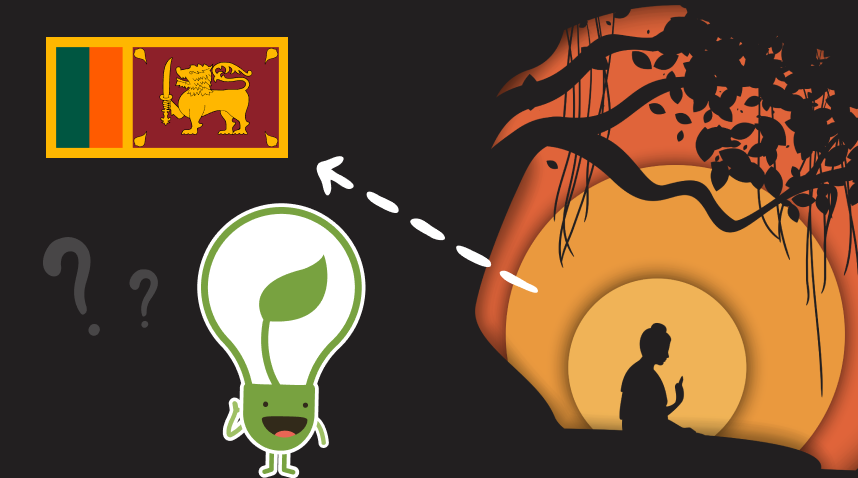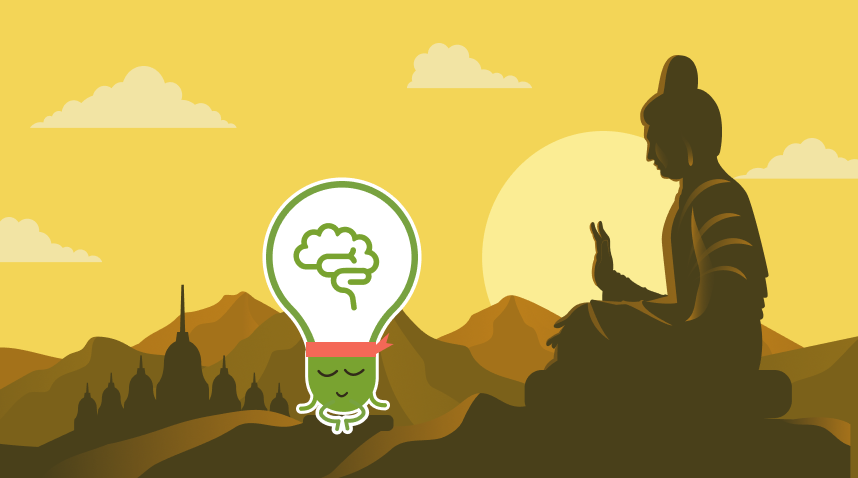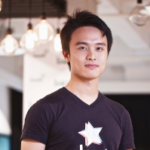TLDR: Vesak Day began as a sacred festival to celebrate Buddha’s attainments and teachings, but as with all conditioned phenomena, has evolved, changed and even diluted in some parts of the world. We trace its origins, evolution and how we can skilfully partake in the upcoming Vesak Day celebrations.
The explosion
9 days into May of 1999, in Yasothon, Thailand, a 120kg homemade rocket launched as part of a rocket competition sharply turned around and crashed into the ground with a deafening explosion, brutally killing 4 and wounding 11. This was a tragic conclusion to the otherwise buoyant three days of carousing and festivities that climax in a rocket-launching competition, locally known as the Bun Bang Fai, or Rocket Festival.
Shocking as the accident must have been, centuries of tradition carry a nearly inexorable momentum, and enthusiasm gingerly but surely picked up the following year.
If one so fancies, instead of spending the upcoming Vesak Day holidays visiting the temples of Singapore, or more likely catching the latest Netflix series at home, one can still witness this spectacle of jerry-built missile launches with a short budget flight and a long drive.
Pre-Buddhist fertility rites & Vesak

Although this festival owes its roots to pre-Buddhist fertility rites, its proximity to Vesak Day on the lunar calendar has led many in the region of Northeastern Thailand to associate it with the celebration of birth, enlightenment and passing of the Buddha.
The association is visibly weak though. A modern participant of the event can expect a rowdy start of all-night performances of Mor Lam Sing, which can be best described as a folksy musical of Laotian roots, leavened with wry and increasingly bawdy humour.
This is followed the next day by a procession of traditional dancers with accompanying musicians, with decidedly consumerist influences such as electric guitars.
Everything builds up to the main act of the rocket launching competition, where rockets made by teams sponsored by local companies fire off into the clouds and are judged on apparent height and distance travelled, with extra points for exceptionally ethereal vapour trails.
All throughout the three days, one can expect to see frequent cross-dressing and great quantities of Lao Whiskey consumption, which is a neutral grain spirit with 40-per cent alcohol content.
The evolution of Vesak
Bun Bang Fai stands out as one of the more colourful and adulterated evolutionary branches of Vesak Day celebrations around the world, and it exemplifies the diversity of commemoration forms even within Southeast Asia.
Internationally, Vesak Day was formalised as an official celebration in the first conference of the World Fellowship of Buddhists held in Sri Lanka, but as with most official designations, the tradition has a history dating far before that in various Buddhist populations.
Even the etymology of Vesak defies a simple explanation. Vesak comes from the Sanskrit term Vaisakhapaurnami Puja. It is also otherwise known as “Visakkha Puja”, which is an abbreviation from the Pali term “Visakhapunnami Puja”, meaning the worship on the full moon day in the sixth month.
Where it all began…Sri Lanka?

Though records are sparse and the exact origin lost to the sands of time, Visakkha Puja is widely believed to have originated in Sri Lanka.
In Thailand, arguably one of the more devoutly Buddhist countries of Southeast Asia, it is likely that the practice was transmitted from Sri Lanka in the Sukothai Era in the 1200s.
When the Sukothai empire declined and fell under the dominion of the neighbouring Ayutthaya kingdom, Vesak celebration was further elevated into a royal and public event, with three days and three nights of official observance.
But after the besieging Burmese forces sacked the city of Ayutthaya and brought the kingdom to its knees in 1767, the sacred ceremony was similarly forgotten.
It was only half a century later, in 1817, at the behest of King Rama II of the present-day Rattanakosin kingdom, in his desire to make supreme merit, that the ceremony was restored.
How it developed in the rest of the region
While Thailand was one of the first countries in Southeast Asia to import this tradition, Vesak Day celebrations continued to find purchase in other parts of the region much later too.
Indonesia celebrated its first Waisak Day, as is locally known, in 1983. Today, it is enshrined as a national public holiday. While it is more actively observed in pockets of the population throughout the archipelago, the centrepiece happens at the Borobudur Temple at Magelang, where thousands of monks chant and meditate, before culminating in the Pindapata.
Closer to home in Malaysia and Singapore, Vesak Day was celebrated mostly by the ethnic Chinese, Thai and Sri Lankan populace. The first recorded mention of its observance was a notice in The Straits Times by jeweller B.P. de Silva, informing readers that his shop would be closed for the celebrations on 8 May 1925.
In Singapore in particular, it was only gazetted as a national holiday in 1956. The exact day of celebration was contested between the Singapore Buddhist Association, and other Buddhist groups, in particular the Buddhist Union, due to a technicality about when the full moon and lunar eclipse fell that year.
The customs of celebrations are quite varied even in Singapore and Malaysia. It ranges from the usual gathering of worshippers to meditate on the precepts, chant and make donations, to the washing of the Buddha statue, to colourful parades in Georgetown and Kuala Lumpur.
The changes over time
As we can see in this quick run-through of the history of Vesak Day, diversity and changes are an undeniable part of nature.
The celebration of Vesak Day, as a conditioned phenomenon, is subject to constant change. In some eras and geographies, it arose due to the presence of favourable conditions, persisted for some time, and inevitably decayed when the causes disappeared.
And so it goes, arising, persisting and passing away. Other than a reminder of the impermanence of all conditioned phenomena, it is also an arresting reminder that this current period when Vesak Day And Buddhism are still remembered as precious is not a given in the future.
It is not a given that the motivated ones among us can access teachings faithful to the source in the future. This reminds us that learning or listening to the Dhamma is an opportunity to be cherished with urgency.
Back to the Original spirit

And thus, given how rare and transient the favourable conditions we presently enjoy are in the long arc of history, I urge my fellow brothers and sisters to look past the rituals surrounding the Vesak Day holiday and connect with its original spirit – by recalling the inspiration and relevance of Buddha’s birth, enlightenment and parinibbana to our daily practice.
As the Buddha exhorted the monks, and one can imagine, all his future followers, “It may be that after I am gone that some of you will think, ‘now we have no teacher.’ But that is not how you should see it. Let the Dharma and the discipline that I have taught be your teacher. All individual things pass away. Strive on, untiringly.”
Let us honour this upcoming Vesak Day with not just material dana (charitable offerings), but also spiritual ones. Apply ourselves generously in all interactions and even in our meditations. Hopefully one day, such beneficial practices find their place in the event programme of Bun Bang Fai, alongside the rocket launches.
Beyond following the many celebrations in Singapore and Malaysia, you can read super interesting stories of the Buddha from Buddhist scholar Sylvia Bay or check out a monk’s heavy research in demystifying the enlightened teacher, the Buddha. If you aren’t the reader type, join our 30-day meditation challenge to kick start your peaceful journey that Buddha set out 2,600 years back.
Wise steps:
- Observe impermanence and unsatisfactoriness in even the most sacred of rituals, for they are also conditioned phenomenon
- Look past the myriad forms of Vesak Day celebrations and connect with its original spirit – that of recalling the Dhamma and applying it in our lives tirelessly
- More than any other public holiday, make a concerted effort to practise generously this coming Vesak Day

